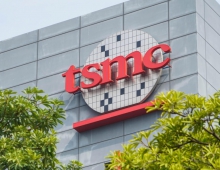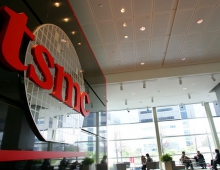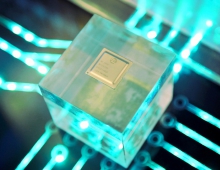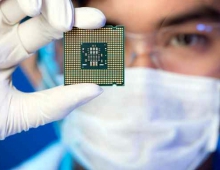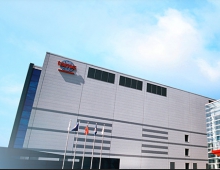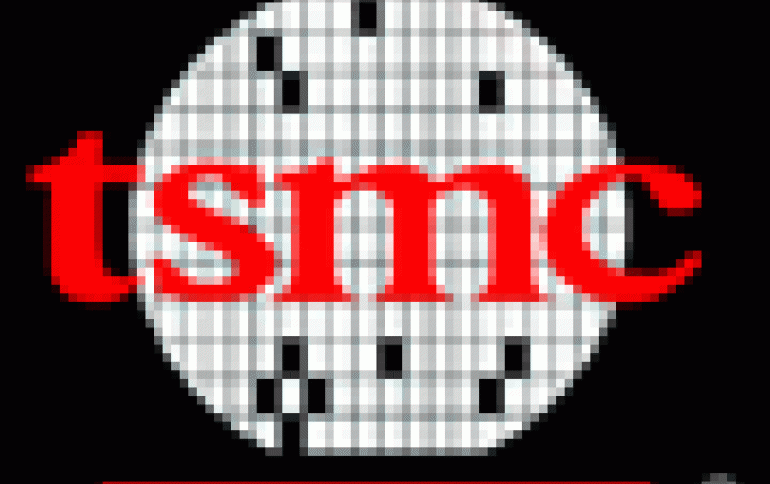
TSMC Posts Record Q3 profit, Sees Drop In Chip Demand To Follow
Taiwan Semiconductor Manufacturing Co Ltd (TSMC) enjoyed profit in Q3 due to high demand for 28nm chips for mobiles, but forecasts
slower demand for the following months the company's clients have
rised their inventory levels.
TSMC announced consolidated revenue of NT$141.38 billion, net income
of NT$49.30 billion, and diluted earnings per share of NT$1.90
(US$0.32 per ADR unit) for the third quarter ended September 30,
2012.
Year-over-year, third quarter revenue increased 32.8% while both net income and diluted EPS increased 62.2%. Compared to second quarter of 2012, third quarter of 2012 results represent a 10.4% increase in revenue, and a 17.9% increase in both net income and diluted EPS.
In US dollars, third quarter revenue increased 9.5% from the previous quarter and increased 29.5% year-over-year.
Gross margin for the quarter was 48.8%, operating margin was 37.2%, and net margin was 34.9%.
The demand for TSMC's 28nd chips for mobile devices was very high in Q2. Shipments of such chips more than doubled during the third quarter and accounted for 13 percent of total wafer revenues, TSMC said. However, rising inventory levels at end-users like automakers and computer makers have stoked concerns, and TSMC said inventory adjustment will cause a fall in fourth-quarter revenue and a "modest dip" in the first quarter of 2013.
TSMC's 40-nanometer accounted for 27% of total wafer revenues, and 65-nanometer was 22%. These technologies accounted for 62% of the company's total wafer revenues, TSMC added.
Chipmakers Broadcomm Corp and LSI Corp have also recently forecast weak fourth-quarter revenue, due to low demand for PCs.
TSMC is also predicted that to likely take over all of Apple's processor contracts from Samsung by 2014.
During a recently held forum on semiconductor technology in Taipei, Market research firm Gartner predicted Samsung's LSI unit to put out as many as 700,000 wafers for Apple processors throughout this year. The market consulting firm predicted that should Samsung lose contracts completely to TSMC, it would see revenue increase at least 10%.
Gartner believes the ongoing patent lawsuits between Apple and Samsung would compel Apple to hedge risk by diversifying foundry sources, with Apple likely to find other sources by 2014 and TSMC a likely candidate.
Year-over-year, third quarter revenue increased 32.8% while both net income and diluted EPS increased 62.2%. Compared to second quarter of 2012, third quarter of 2012 results represent a 10.4% increase in revenue, and a 17.9% increase in both net income and diluted EPS.
In US dollars, third quarter revenue increased 9.5% from the previous quarter and increased 29.5% year-over-year.
Gross margin for the quarter was 48.8%, operating margin was 37.2%, and net margin was 34.9%.
The demand for TSMC's 28nd chips for mobile devices was very high in Q2. Shipments of such chips more than doubled during the third quarter and accounted for 13 percent of total wafer revenues, TSMC said. However, rising inventory levels at end-users like automakers and computer makers have stoked concerns, and TSMC said inventory adjustment will cause a fall in fourth-quarter revenue and a "modest dip" in the first quarter of 2013.
TSMC's 40-nanometer accounted for 27% of total wafer revenues, and 65-nanometer was 22%. These technologies accounted for 62% of the company's total wafer revenues, TSMC added.
Chipmakers Broadcomm Corp and LSI Corp have also recently forecast weak fourth-quarter revenue, due to low demand for PCs.
TSMC is also predicted that to likely take over all of Apple's processor contracts from Samsung by 2014.
During a recently held forum on semiconductor technology in Taipei, Market research firm Gartner predicted Samsung's LSI unit to put out as many as 700,000 wafers for Apple processors throughout this year. The market consulting firm predicted that should Samsung lose contracts completely to TSMC, it would see revenue increase at least 10%.
Gartner believes the ongoing patent lawsuits between Apple and Samsung would compel Apple to hedge risk by diversifying foundry sources, with Apple likely to find other sources by 2014 and TSMC a likely candidate.

